In British Columbia, wills and estates matters are governed by various statutes, including the Wills, Estates and Succession Act, and the Trustee Act. Compliance with these laws is critical to ensuring a successful and legally sound estate administration process. With expert guidance from Pathfinder Law, clients can confidently navigate the complex landscape of wills and estates law, address their concerns and plan for the future with the assurance of knowing that their assets are protected.
Whether you are an individual seeking to create a comprehensive estate plan or a family dealing with estate administration matters, our in-depth guide to wills and estates in British Columbia offers the essential knowledge and guidance needed to address these matters with confidence. Rely on the expertise of Pathfinder Law to guide you through the intricacies of wills and estates law in British Columbia and ensure that your assets are managed and distributed as intended.
Estate Planning: Preparing for the Future
1. The Importance of a Comprehensive Estate Plan
Estate planning is the process of organizing one’s assets and designating how they will be managed and distributed upon their death. A comprehensive estate plan typically includes a will, powers of attorney, and possibly trusts. Proper planning helps ensure a person’s wishes are fulfilled, minimizes tax implications, and reduces potential conflicts among beneficiaries.
2. Selecting an Executor
An essential component of estate planning is choosing an executor who will be responsible for administering the estate. It is crucial to select a trustworthy individual who can effectively carry out the duties associated with the role, such as obtaining probate, paying debts, and distributing assets to beneficiaries.
Wills: The Cornerstone of Estate Planning
1. Crafting a Legally Valid Will
A will is a legal document that outlines how a person’s assets should be distributed upon their death, as well as the appointment of a guardian for any minor children. Ensuring a will is legally valid and complies with British Columbia’s Wills, Estates, and Succession Act is fundamental to preventing future disputes and ensuring the testator’s wishes are respected.
2. Periodic Review and Updates
Life events, such as marriage, divorce, or the birth of children, may necessitate updates to an existing will. Regularly reviewing and updating one’s will ensures that it accurately reflects current wishes and avoids potential complications during the estate administration process.
Probate: An Essential Step in Estate Administration
1. Understanding the Probate Process
Probate is a court process in British Columbia that confirms the validity of a deceased person’s will and grants authority to the executor to administer the estate. Understanding the probate process, required documentation, and associated fees is vital for the smooth administration of an estate.
2. Handling Estate Administration without a Will
If a person dies without a valid will in British Columbia, they are deemed to have died intestate, and their estate will be distributed according to the Wills, Estates, and Succession Act. Navigating estate administration without a will can be a complex and challenging process, requiring the appointment of an administrator and potentially leading to disagreements among family members.
Estate Dispute Resolution: Managing Conflicts and Legal Matters
1. Common Types of Estate Disputes
Estate disputes can arise for various reasons, such as contesting the validity of a will, disagreements about the distribution of assets, or conflicts between the executor and beneficiaries. Recognizing the potential for disputes and understanding the legal issues involved is critical for successful estate administration and resolution.
2. Mediation and Litigation
Dispute resolution in estate matters often involves mediation or litigation processes. Mediation is a form of alternative dispute resolution where a neutral third party assists in finding a mutually agreeable solution. In contrast, litigation is a formal legal process involving a judge who adjudicates the dispute. The choice of resolution method depends on the specific dispute and the parties involved.
Conclusion: Navigate the Complex World of Wills and Estate Law with the Help of Pathfinder Law
Navigating the complexities of wills and estates law in British Columbia is crucial for individuals and families looking to ensure their assets are managed and distributed according to their wishes while minimizing potential disputes and complications. Pathfinder Law’s comprehensive guide to wills and estates in British Columbia equips clients with the knowledge and insights they need to confidently address their wills and estates concerns, ensuring a smooth and successful estate administration process.
By familiarizing themselves with crucial aspects of wills and estates law, such as estate planning, probate, estate administration, and dispute resolution, individuals and families can make more informed decisions and chart a well-planned course for their estate matters, ensuring their intentions are respected and their assets are protected.
Do you require guidance and support for navigating wills and estates matters in British Columbia? Contact Pathfinder Law today to discuss your unique situation and learn how our experienced estate lawyer in Abbotsford can assist you with estate planning, probate, estate administration, and dispute resolution, ensuring your interests are protected and your assets are managed and distributed as intended.


